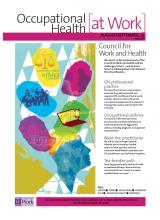August/September 2015 (vol. 12/2)
ContentsFeaturesNewsLegal
NewsResearch DigestResearch PlusCPD
Research Plus
Work engagement
High work engagement can have a positive influence on work–family balance, but is not predictive of workaholism, this seven-year follow-up study of 1,580 dentists in Denmark reveals. Participants completed questionnaires at the start of the study, and after three and seven years. It assessed: work engagement; workaholism; work-to-family enrichment (WFE); and work-to-family conflict (WFC). Baseline work engagement predicted WFE at three years (p < 0.001); and work engagement recorded at three years positively predicted WFE after seven years (p < 0.01). WFE also positively predicted future work engagement at both time points. Workaholism predicted WFC at three (p < 0.01) and seven years (p < 0.001), but WFC was not a predictor of future workaholism. Importantly, high work engagement predicted lower WFC at both three and seven years suggesting, say the authors ‘that hardworking but engaged employees have surplus resources that protect them from WFC’. Conversely, there was no relationship between work engagement (which should be encouraged) and workaholism (which should be prevented).
Occupational Health at Work August/September 2015 (vol. 12/2) pp39



